New Zealand and other nations around the world have moved or are moving into lockdown status in response to the current pandemic to help health services better deal with cases as they arise.
Shifting to Alert Level 4 means that to protect NZ and reduce the transmission of COVID-19, only essential services remain running.
Public spaces have closed and most Kiwis are now confined to their homes or campers, able to shop for groceries or carry out other essential tasks only. We are only to make physical contact with those we live with.
Most families have either been thrust into early holiday type scenarios or are having to guide their kids at home while they do their schoolwork in books or online.
As well as this, the news of school closures and lockdown come as a shock to many parents who now must figure out how to juggle their own jobs with kids needing supervision at home.
Many parents or carers also have to work from home or may be facing the boredom and frustration that containment without purpose can bring.
Our family is suddenly all in a small space full time together again, having to develop new routines and deal with the uncertainty that faces us.
We don’t have things available to us that we are used to. We don’t have peace and quiet as we work. We have the added demand of kid’s questions and needs too.
One of us is super busy right now supporting online learning for the school he works at as they rapidly get used to distance learning.
Events and services around us have been cancelled and closed.
We’re socially distancing. We’re tired and a bit shocked by the suddenness of it all but we want to get through this well by showing love and being kind to others throughout.
So in these unprecedented times, how do we thrive in close quarters when we’re holed up for so much of the week with only occasional solitary walks?
We can get through this but how do we shift panic or fear to altruism and stay healthier and sane through this epidemic?
We don’t have all the answers but here are ten easy ways to help you thrive at this time.
10 Ways To Thrive During Lockdown
1. Make a plan
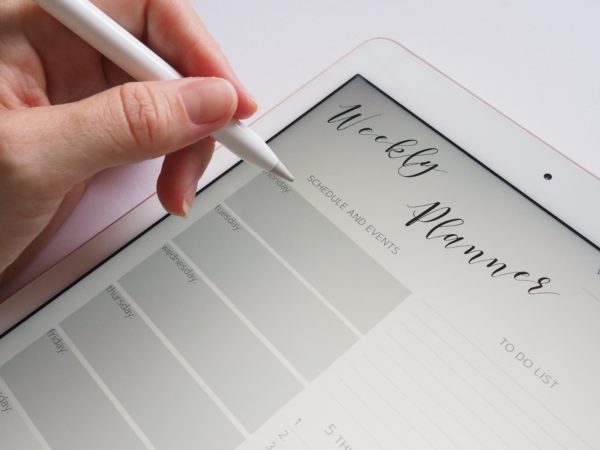
If you’re at home all day, experts suggest that structuring your day can help. Thinking and planning ahead should help you feel more prepared and less concerned.
Think through a normal week: how might it be affected and what would you need to do to solve it? Try using a board or chart to share the weekly outline and include breaks and jobs to be done.
You might want to think about talking with your employer, understanding your sick pay and benefits rights, and preparing some essentials for while you are at home.
2. Stick With Routines
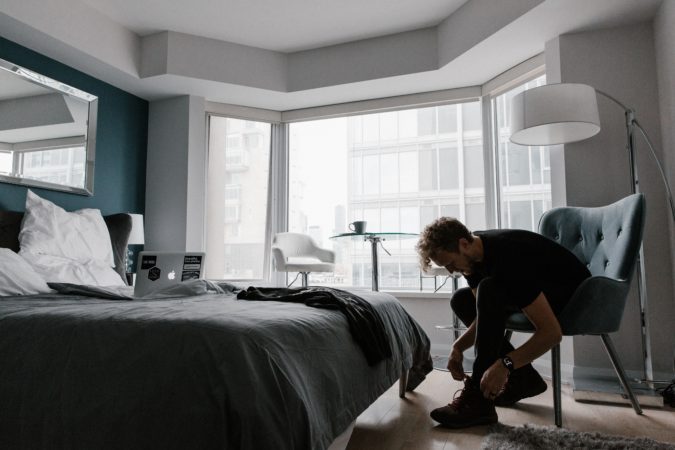
Stick to your daily plans and routines where you can.
Get up. Take a shower. Eat meals at set times. Set up a work space. If you are working from home, here are some tips on how to do it.
You could set tasks for each day and if you’re not working, this could be time to finally sort the back of the wardrobe or the weeds in your garden.
For kids, ensure their learning is happening but you could shift the timings to better suit your day. Get into subjects together – read, research, write, or play.
3. Use Online Resources
As you can’t get to the library right now, borrow books online from Libby, Wheelers or BorrowBox using your library card to sign up after downloading the app.
Auckland Libraries use Libby or Overdrive. Other districts have other preferred apps.

They are free apps you can download to your smartphone, iPad, or tablet device.
You need to enter your library card number and from there you can freely borrow books from their digital collection i.e. magazines, ebooks & audiobooks.
Once you’ve borrowed an item, it usually sits on your ‘shelf’ for three weeks usually then returns itself so there are no overdue charges to pay, ever.
Sometimes there’s a queue for popular items so you may have to place a hold and wait for it to become available.
What I love about Libby, the app I use is that you can search all genres, images of the books are included, as well as a blurb to help you decide.
Plus there’s a growing selection of items available in audiobook format so you can even listen as you drive, cycle or suntan!
Many online reading services are being offered free of charge at this time too so take advantage of them. You could check out what Kindle and Audible have to offer.
One major change with lockdown is that we can’t access clubs or lessons like we used to. How about using Skype, Zoom, or another handy app to teach or receive your lessons virtually? I know a music teacher using this technology successfully.
Many schools are also using some kind of platform to teach virtual lessons now or will after the adjusted Easter break.
Our sons’ school has embraced Microsoft Teams and the staff is using it so well to deliver all timetabled lessons for the seniors. In addition, there’s a chat feature so the kids can still connect with each other too, though I’d recommend allowing it at set times only to ensure learning progress continues. Oh, and brain breaks away from devices are frequently needed too.
4. Plan Practical Things

Work out how you can get any household supplies you need. You could try asking neighbours or family friends, or find a delivery service.
Continue accessing treatment and support for any existing physical or mental health problems where possible. Let services know you are staying at home, and discuss how to continue receiving support.
If you need regular medication, you might be able to order repeat prescriptions by phone, or online via a website or app. Contact your GP and ask if they can offer this. You can also ask your pharmacy about getting your medicine delivered, or ask someone else to collect it for you.
If you support or care for others, either in your home or by visiting them regularly, think about who can help out while you are staying at home.
5. Follow Government Guidelines

You can read all about COVID-19 here. It’s a government source, which are the best ones to listen to at this time.
People are posting a lot of stuff online so ensure that you fact-check all your sources of information before sharing links. This website is a good source of information for what to do during isolation and ways for us to unite against this pandemic.
Follow government and supermarket guidelines to avoid herd mentality, only shopping when you absolutely need it. Aim to shop on your own and pick times when it’s quieter so you can move through calmly.
It’s also advised that if you see emails about Coronavirus from someone you don’t know, to not click on any links or buy anything, as scams abound.
Don’t give money or personal details to anyone you don’t know or trust – for example, if someone knocks on your door and offers help.
6. Take This Chance To Up-Skill Or Do Online Courses

Is there something you’d like to learn while you have extra time at home?
Perhaps you’d like to learn to cook something new or do a (free) online course?
Focusing on your favourite hobby, learning something new, or simply taking time to relax with others at home will help with anxious thoughts and feelings and give you a heightened sense of purpose and satisfaction.
Check out Udemy for a huge range of online courses.
Teachable, Coursera, and Khan Academy are other options.
Working from home successfully now may impact the way we do things in the future so if you’re keen to be location independent, perhaps use this time to show how productive you can be working from home. There are tons of apps you could use to measure your productivity and help you get more work done in less time.
Why not try one and see if this is your pivot point to working remotely?
Eleven top options include: ToDoist, Calendar, CloudApp, HubSpot CRM, Slack, Trello, Hootsuite, Toggl, LastPass, HelloSign and Zapier.
7. Recreation & Exercise
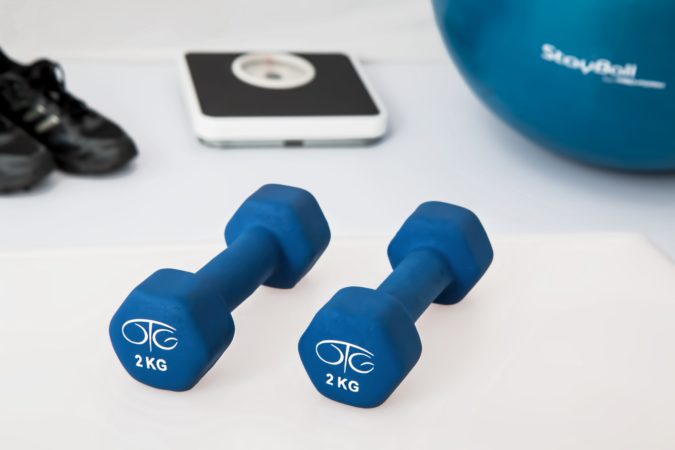
Our physical health really affects how we feel. Exercise is good for people’s mental health as it helps us cope with stress.
As winter approaches and we’re confined, the winter blues can show up so make sure you and your family eat healthy, well-balanced meals, drink enough water, and exercise regularly.
Taking Vitamin D and getting some sunshine can boost your mood too. Other supplements can help at this time, like Zinc, which boosts the immune system and helps treat colds, while gargling with salt water last thing at night can help soothe sore throats.
Some people also find that mindfulness and relaxation exercises, getting outside, and connecting with others can help with feelings of frustration, depression or anxiety.
- Go for a walk, run, or bike ride. It must be solitary, or with those you live with only.
- When outside, don’t go to parks or playgrounds but you can walk your neighbourhood.
- DOC has closed all its campsites and huts but many urban pathways are still accessible.
- Do not go hunting or hiking, and especially not on overnight trips.
We’ve just started doing a family fitness challenge. We got an A-Z list of exercises similar to this one.
8. Stay Connected and Do Something Thoughtful for Others
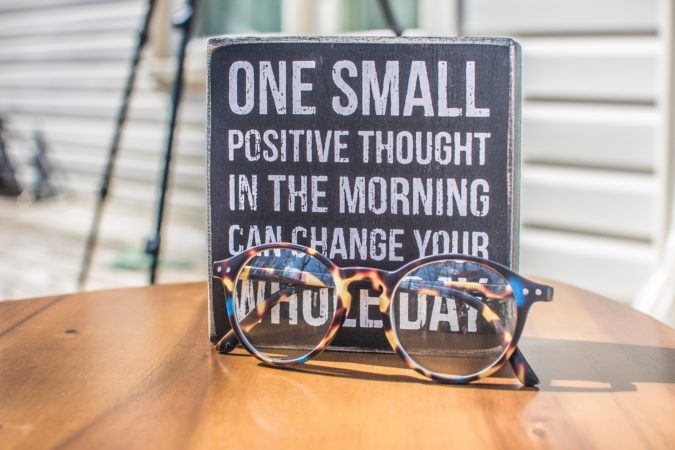
Be reassuring to friends, caregivers, and whānau. We all have a particularly important part to play in reassuring children at this time too. Michelle Dickinson has good information that explains Covid-19.
Keep in contact with people by phone. Call neighbours to check-in and ask if there is anything you can do to help them, especially if they’re elderly. You can even schedule a time to talk like you would if you were meeting for coffee.
If you are a vulnerable or high-risk person, please stay at home and ask friends or family and whānau to drop off anything you need, or you can order supplies online.
If you like the idea of doing something sweet and thoughtful for others…how about placing a teddy bear in your front windows?
Many homes around NZ are doing this. It is part of a worldwide Facebook initiative — We’re Not Scared, NZ Bear Hunt – and it provides children with something to look forward to on daily walks during lockdown.
9. Look After Your Mental Well-being
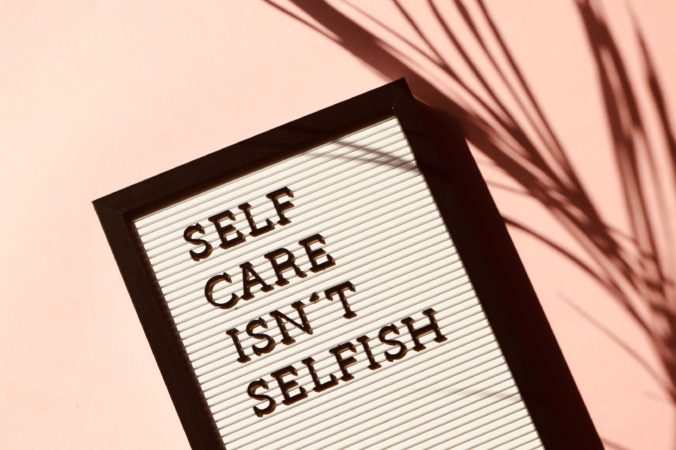
Since you’re having to stay at home, it’s important to take care of your mind as well as your body.
You may feel bored, frustrated, or lonely at times. You may also be low, worried, or anxious, concerned about your finances, your health, or those close to you.
It is OK to feel like this – everyone reacts in their own way to challenging events and uncertainty. It’s important to remember that staying at home may be difficult, but you are helping to protect yourself and others by doing so.
Here are some practical things you can do to enhance your mental well-being:
- Find out about your employment and benefits rights
You may be worried about work and money if you have to stay home and these issues can have a big effect on your mental health.
If you have not already, talk with your employer about staying at home, and learn about your sick pay and benefit rights. Knowing the details about what the coronavirus outbreak means for you can reduce worry and help you feel more in control.
-
Stay in contact with others

Maintaining healthy relationships with people you trust is important for your mental well-being. Think about how you can stay in touch with friends and family while you are at home via phone messaging, video calls, or online.
Lots of people are finding the current situation difficult, so staying in touch could help them too.
-
Talk about your worries
It is quite common to feel worried, scared, or helpless about the coronavirus outbreak, which is perfectly normal.
Try to focus on the things you can control, such as your behaviour, who you speak to, and where and how often you seek out updates and information.
It’s fine to acknowledge that some things are outside of your control, but if constant thoughts about it are making you feel anxious or overwhelmed, try some of these ideas to help manage your anxiety.
It is also OK to share your concerns with others you trust and doing so could help them too. Or you could try calling a charity helpline or web chat.
The NZ Government has a helpline so if you are unable to find what you need, and are not sure who to contact for help, ring 0800 779 997 (8am –1am, 7 days a week) or 0800 22 66 57 (9am – 5pm, Monday-Friday).
-
Get good sleep
Good-quality sleep makes a big difference to how we feel mentally and physically, so it’s important to get enough. Try to keep to a regular sleeping pattern and follow healthy sleep habits.
Don’t be glued to the TV, to the statistics or social media. Instead read books, watch movies, do activities with your children if you have some, and continue your hobbies.
If you’re having sleep problems related to coronavirus , search here for ideas on how to cope.
-
Build in self-care
Self-care is doing things that make you feel happy and relaxed. This helps you feel better overall and you’ll have more resilience to handle additional pressures.
Self-care can also improve our immunity, increase positive thinking, and reduce stress levels.
People who neglect their own needs and forget to nurture themselves are at danger of deeper levels of unhappiness, low self-esteem, and feelings of resentment.
Taking time regularly for self-care can actually make you a better responder and caretaker for others so try fit in some of the following:
- Creating a chill zone in your home where you or others can sit uninterrupted for a while
- Take a soak in the bath or spa
- Listen to sensory integration music on Spotify – this helps me relax every time
- Care for your skin, nails, or hair.
- Read books or listen to audiobooks
- Record 3 things you are grateful for daily
- Keep a journal
10. Do Fun Activities

As we’re all on lockdown for a time, our usual public spaces are unavailable so we need new ideas for what to do to occupy ourselves.
If you want a whole lot of activity ideas, I’ve written two posts with tons of links and fresh ways to build skill and occupy everyone.
This one has ideas for all ages, and this one is focussed more on activities to do with kids or let them do themselves.
Here are a variety of good activities I’ve found that anyone can enjoy at home:
- Read
- Play games
- Climb trees
- Make forts
- Scoot or ride bikes
- Dress up
- Dye hair
- Watch a Free Broadway Shows
- Paint rocks & pictures
- Do outdoor art
- Go on an Australia Zoo Virtual Tour with Robert Irwin
- Go on a Walt Disney World Resort Tour
- Check out Google’s Arts & Culture website to tour The Metropolitan Museum of Art
- Take a Vatican Online Tour
- Go on a Smithsonian Virtual Tour
- Other Top Virtual Museum and Art Gallery Tours
- 56 Famous Sites, Zoos, Aquariums and Museums to see from your couch
- Virtual Field Trips for Kids
- Bake or cook up a storm
- Craft
- Watch programmes on Disney+ or Netflix
What helpful or fun things have you found to do during lockdown?
Share them below and we can build this list even more.
I hope this post has been helpful to you.
Please click on an image below to pin this post.
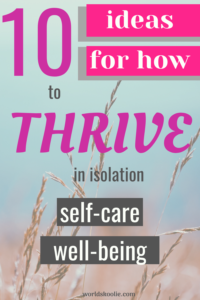

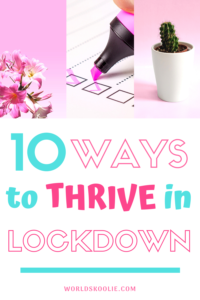
Thanks!

Meagan


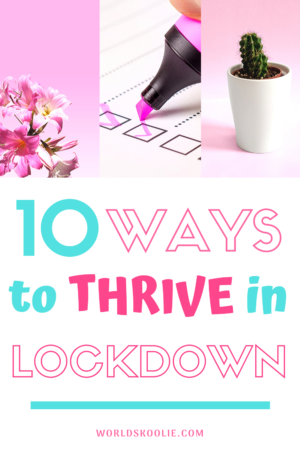

Thanks! Writing posts does take a lot of time so thanks for your comment, it’ll keep me going!
Well researched and presented. Thank you.
You’re so welcome 🙂
Brilliant, thanks for this!